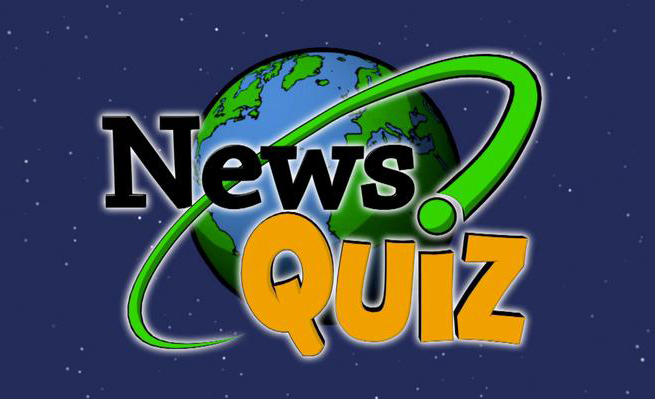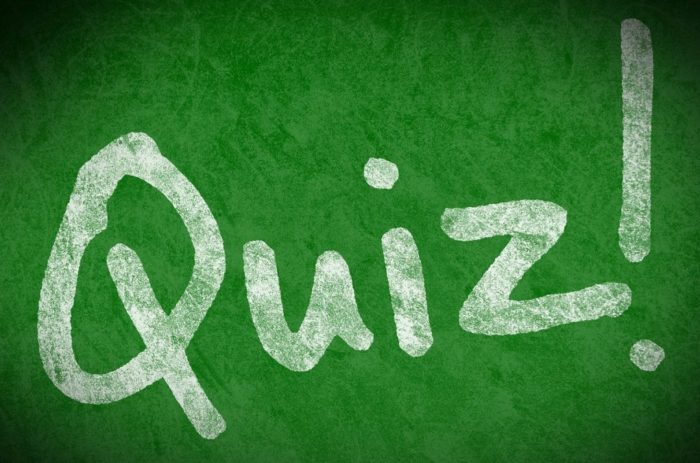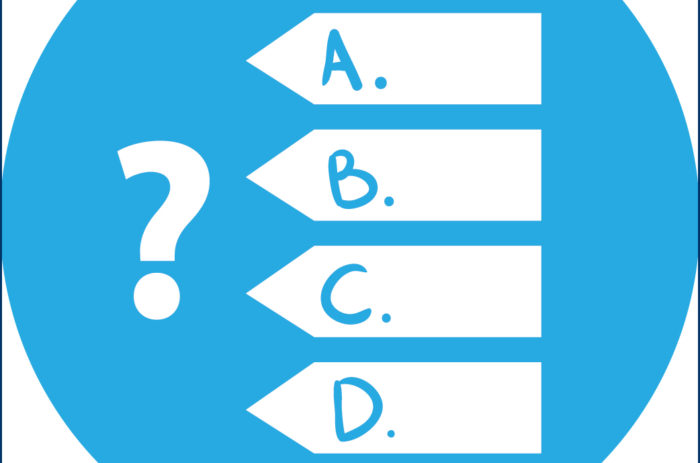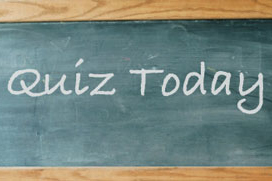Questions
NOTE: This week’s quiz is a special “Presidential Election” quiz.
1. Article II, Section 1 of the U.S. Constitution stipulates certain requirements for becoming president of the U.S. Which one of the following is not a requirement for becoming president?
a) must have been a resident within the U.S. for at least fourteen years
b) must be at least 35 years old
c) must be a natural born citizen of the U.S.
d) spouse must be natural born citizen
2. At the end of the primaries and caucuses, each party holds a ___________________ to finalize the selection of one Presidential nominee. During this time, each Presidential candidate chooses a running-mate (vice-presidential candidate).
a) secret ballot
b) national convention
c) campaign
d) victory party
3. In the U.S., the system in which each state gets a certain number of electors, based on each state’s total number of representation in Congress is known as the:
a) Electoral College
b) primary / caucus
c) general election
d) Congressional appointment
4. Which amendment to the U.S. Constitution (ratified in 1933) moved Inauguration Day from March 4 to the day on which it is now held?
a) the Second Amendment
b) the Twentieth Amendment
c) the Fifth Amendment
d) the First Amendment
5. A presidential inauguration is a ceremonial event centered on the formal transition of a new president into office. Inauguration Day occurs on _____________ (or 21st if the 20th is a Sunday).
a) November 20
b) June 20
c) March 20
d) January 20
6. On February 27, 1951 the 22nd Amendment was ratified. The text reads in part: “No person shall be elected to the office of the President more than twice, and no person who has held the office of President, or acted as President, for more than two years of a term to which some other person was elected President shall be elected to the office of the President more than once.” It has been referred to as the _________________ amendment.
a) free speech
b) term limit
c) career politician
d) none of the above
7. Who is the only president to have served more than two terms in office? (He was elected to office four times.)
a) Teddy Roosevelt
b) George Washington
c) Dwight D. Eisenhower
d) Franklin D. Roosevelt
8. The president is the head of the executive branch of government. What can’t the president do?
a) propose a bill
b) write a bill
c) veto a bill
d) all of the above
9. Making history, Donald Trump is the first person elected president who:
a) is a businessman
b) is wealthy
c) has never held any political office or any position in the government
d) was endorsed by every major media outlet and national politician in his own party
10. Which of the following issues is not one President-elect Trump vowed to address if elected?
a) ban the use of fossil fuels to generate energy
b) close the border
c) lower taxes
d) bring jobs back to America
Daily “Answers” emails are provided for Daily News Articles, Tuesday’s World Events and Friday’s News Quiz.



